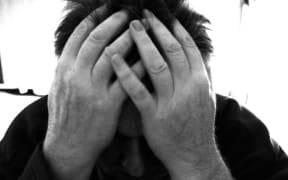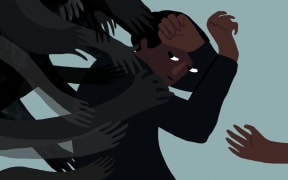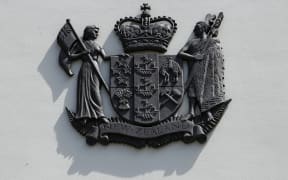A popular new Netflix series about teen suicide should spark parents to talk about the problem with their children, a high school teacher says.
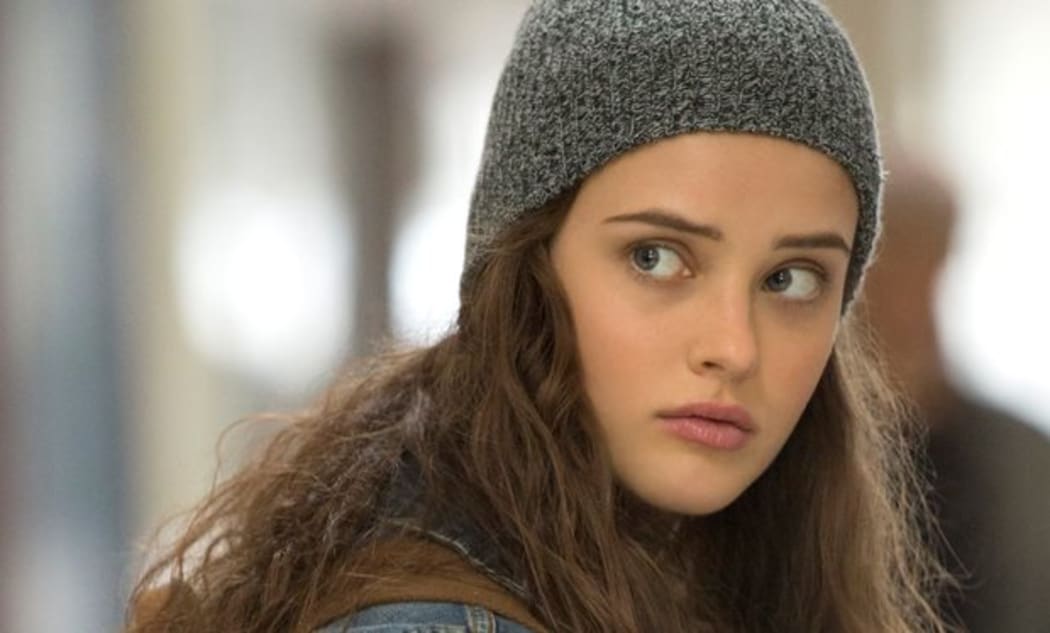
Katherine Langford plays Hannah Baker in Netflix's controversial new series 13 Reasons Why. Photo: Netflix
13 Reasons Why, which went online two weeks ago worldwide, is about a teenager called Hannah Baker who commits suicide.
The Mental Health Foundation has described the programme as irresponsible, unsafe, and unethical, and said the show should never have been released because it was putting young people at risk.
Counsellors also said the show was putting vulnerable people who were struggling with suicidal thoughts at risk.
But Paul Stevens, a teacher at Albany Senior High School, told RNZ the programme was resonating with young people.
"Young people are already talking about these things. It's something that's already a real issue in New Zealand, and when you do have the highest rate of teen suicide in the OECD, and also deals with consent, and rape, and it's really resonated with young people in New Zealand, I think."
Mr Stevens said parents should watch the show alongside their children to make sure the young people have emotional support.
13 Reasons Why has become the most widely shared streaming programme ever on social media.
In the series, based on a 2007 novel with the same name, Hannah Baker leaves behind 13 tapes - one for each of the people she says caused her to end her life.
The series shows two graphic and detailed rape scenes, as well as an unspeakably grim three-minute scene of Hannah's death.
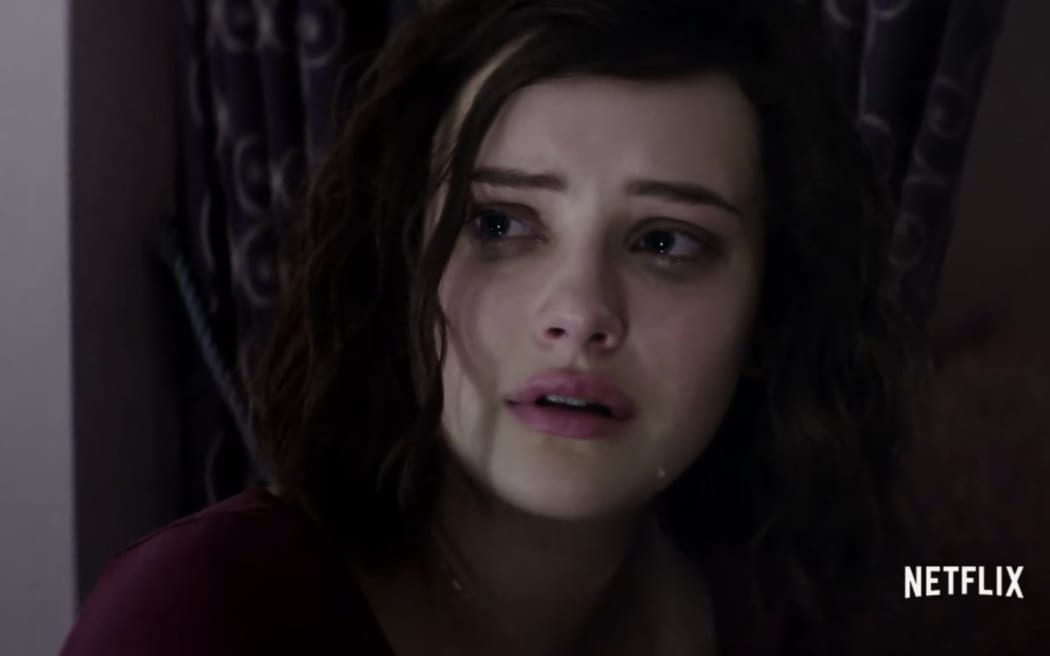
A scene from the shows trailer Photo: YouTube / Netflix
Mental Health Foundation chief executive Shaun Robinson said the show sensationalised, justified and glamourised suicide, and should never have been released.
"It's actually quite an unethical programme and it's really exploiting young people and their concerns, and trivialising topics around mental health and suicide," he said.
There appeared no hope of getting help and getting better in the series, and Mr Robinson said he had seen social media posts where people said it was making them feel terrible, depressed and hopeless.
Where to get help:
- Lifeline: 0800 543 354
- Suicide Crisis Helpline: 0508 828 865 / 0508 TAUTOKO (24/7). This is a service for people who may be thinking about suicide, or those who are concerned about family or friends.
- Depression Helpline: 0800 111 757 (24/7)
- Sparx online e-therapy tool for young people
- Samaritans: 0800 726 666 (24/7)
- Youthline: 0800 376 633 (24/7) or free text 234 (8am-12am), or email talk@youthline.co.nz
- What's Up: online chat (7pm-10pm) or 0800 WHATSUP / 0800 9428 787 children's helpline (1pm-10pm weekdays, 3pm-10pm weekends)
- Kidsline (ages 5-18): 0800 543 754 (24/7)
- Rural Support Trust Helpline: 0800 787 254
- Healthline: 0800 611 116
- Rainbow Youth: (09) 376 4155
- OUTline 0800 688 5463 (OUTLINE) provides confidential telephone support on sexuality or gender identity
- If it is an emergency and you feel like you or someone else is at risk, call 111
"I am very concerned about the very graphic and detailed portrayal of how Hannah takes her own life," he said. "I'm very concerned that this could seriously put young people's lives at risk."
A school counsellor and executive member of the Association of Counsellors, Sarah Maindonald, shared her view.
"If you've got a 14-year-old girl who's already thinking about [suicide] because her life's pretty miserable - she might be bullied at school, or she hasn't got much support or friends, or she's not very good at expressing herself or asking for help - and she's seeing a glamourous picture in a drama, you know, this girl [in the show] does end up suiciding and leaves notes and suddenly everyone's talking about her and getting this kudos," she said.
"That's a really dangerous message."
Young people question whether show is risky
But one Auckland teenager said the Netflix series was teaching teenagers about the consequences of bullying and sparking discussion about suicide.
Sukrit Singh, 17, said the series was sparking discussion among teenagers.
"It's showing you the reasons why people go into a state like that, and they're telling people 'you can talk to people and try to get over it'. It's a pretty good show, and everybody should watch it."
Mr Singh said many of his friends had also watched the series and he thought it was raising awareness of suicide in New Zealand.
A Youthline leader also said the series did not make suicide appealing.
Twenty-year-old youth leader Charlie Laurie said while there was an element of using suicide as revenge, he thought the show portrayed the harsh consequences of suicide correctly.
"At the end of the day, people can see the amount of pain that people are going through in that show, as well, especially with the parents, just their great amount of grief."
Mr Laurie said he wanted people to know they were not alone and could always speak to services like Youthline about their problems.
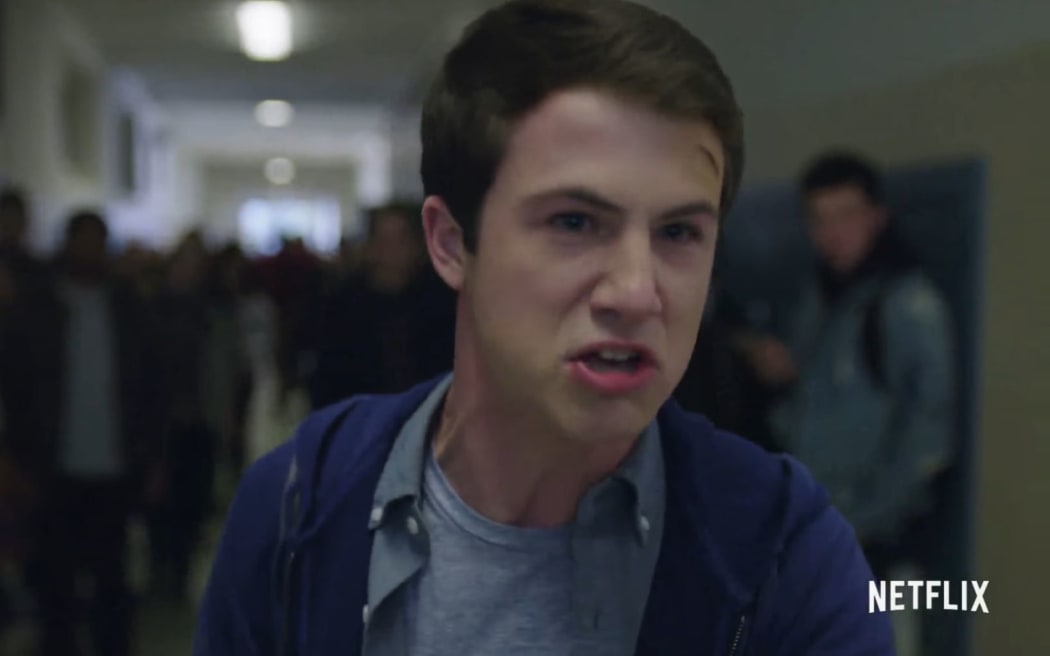
A still from the trailer featuring one of the show's protagonists, Clay, played by Dylan Minette, who receives Hannah's tapes. Photo: YouTube / Netflix
Netflix said it consulted several mental health professionals during production, had rated the programme for a mature audience only, and had referred it to New Zealand's censorship office.
It also released an accompanying 30-minute show that delves deeper into the tough topics portrayed, and its website directs viewers to local mental health resources.
It also said it supported the unflinching vision of its creators and was proud to offer a platform that could portray undoubtedly tough issues for young adults with complete and uncensored authenticity.
Help for parents, family and friends
- Common ground a website hub providing parents, family, whānau and friends with access to information, tools and support to help a young person who is struggling
- Parent Help 0800 568 856
- Family Services 211 Helpline - 0800 211 211 - Community based health and social support
- Skylight - 0800 299 100 - for support through trauma, loss and grief; 9am-5pm weekdays
- Supporting Families In Mental Illness - 0800 732 825 - For families and whānau supporting a loved one who has a mental illness
Grace, 17, watched the series with her mum and said most of her friend group had watched the show.
It had got them talking, she said.
"Sexual assault and suicide and things, people usually shy away from them," she said. "Especially in friend groups even and in school because they're taboo subjects.
"Having this show so widely talked about has had an effect on a lot of people, it's got people talking in a way nothing else has done up until this point."
Grace said the topic of suicide was such a taboo, teenagers were not given the information or tools they need to confront it.
"[I am in] my last year of high school, so it's the last chance people have to guide us and walk with us to teach us these things before we go into the real world," she said.
Discussion 'vacuum'
Youthline chief executive Stephen Bell said everyone needed to grapple with suicide prevention now the show has been released.
"It's come out like this with such stark stories because of the vacuum around the discussion," he said. "I find it really hard to say 'no, it should not have been released' because it's incredibly important for us as a country to start having these conversations.
"To cut through you have to have something that is about the reality. The danger of not talking about this is far greater," he said.
The Commonwealth Secretariat ranked New Zealand 83rd out of 183 countries for teenagers' health and well-being; and it consistently ranked among the worst in the world for its level of teen suicide.
Mr Bell said fixing that required more money and removing the stigma around asking for help.

